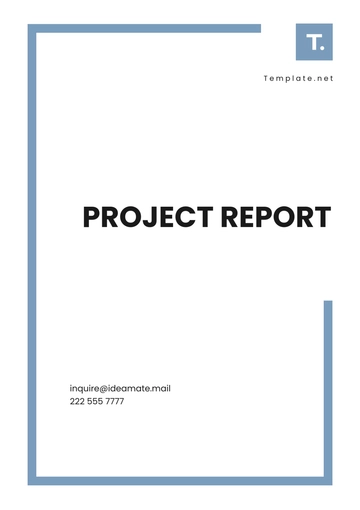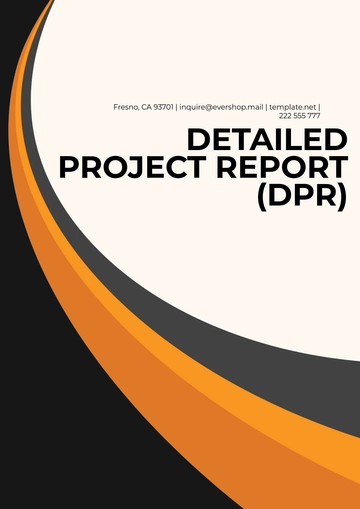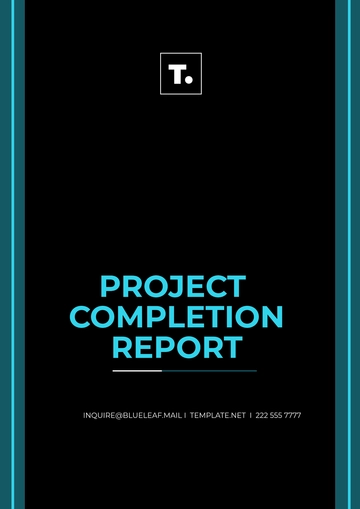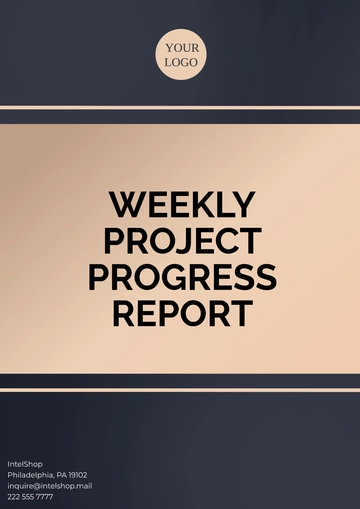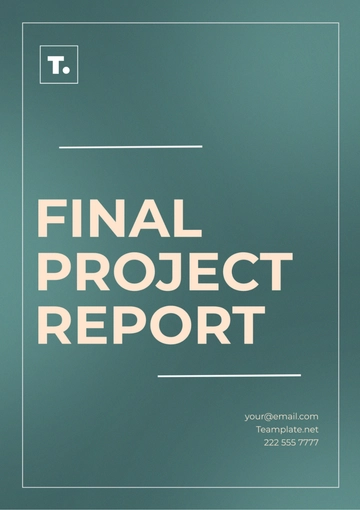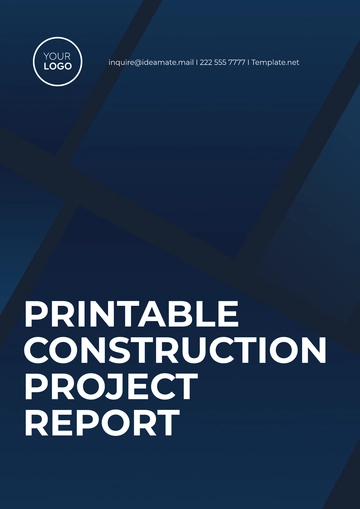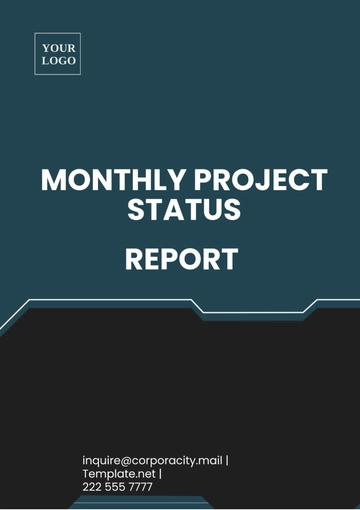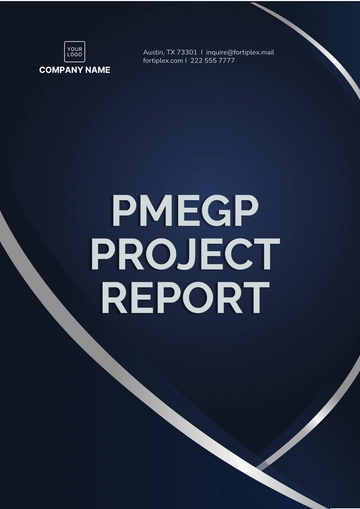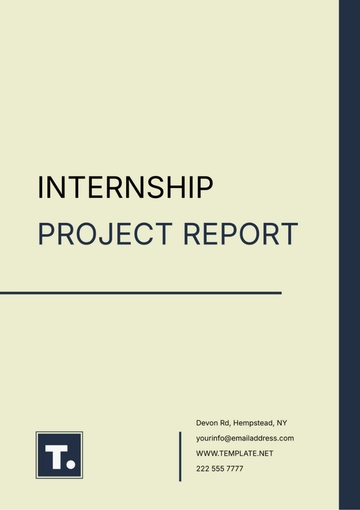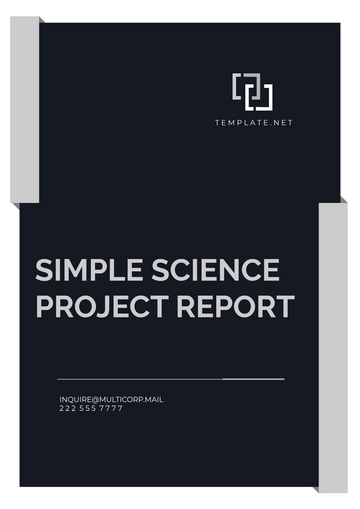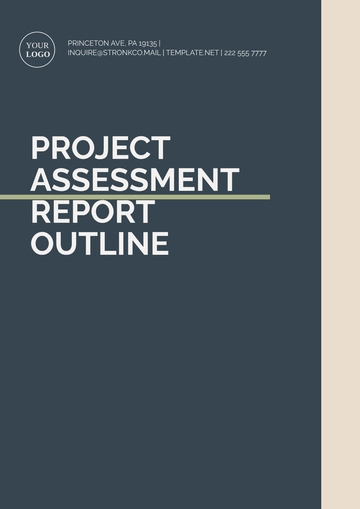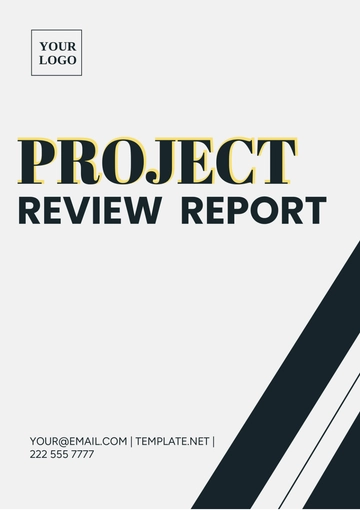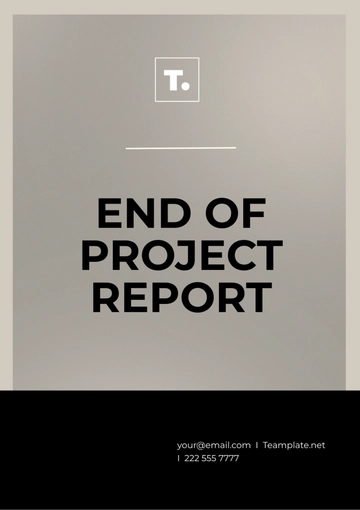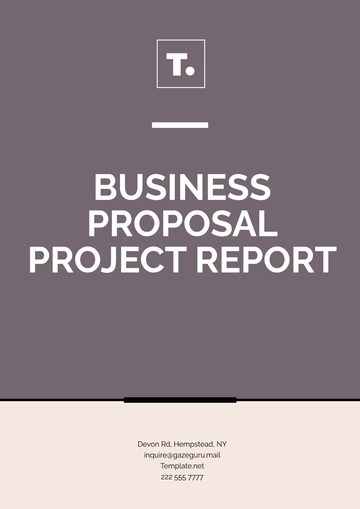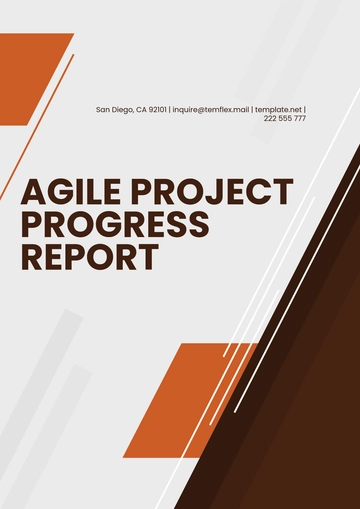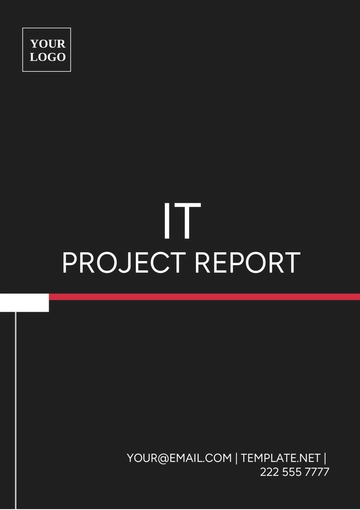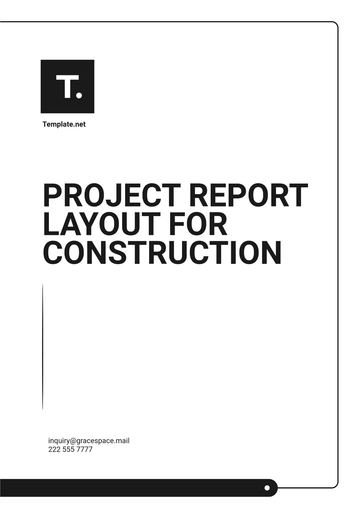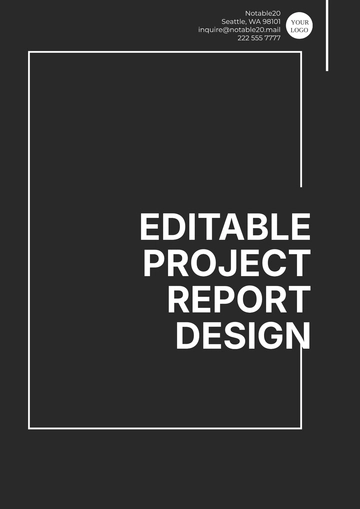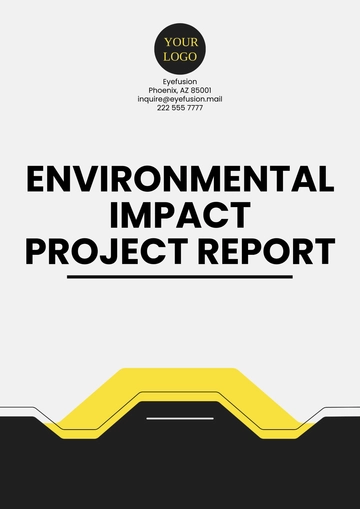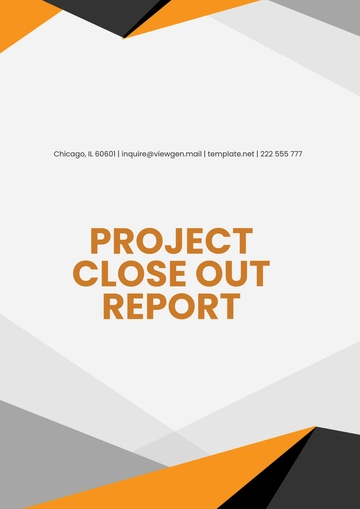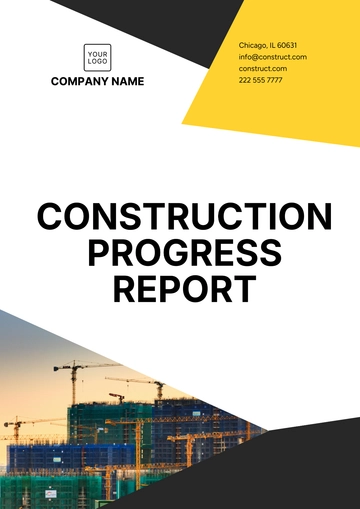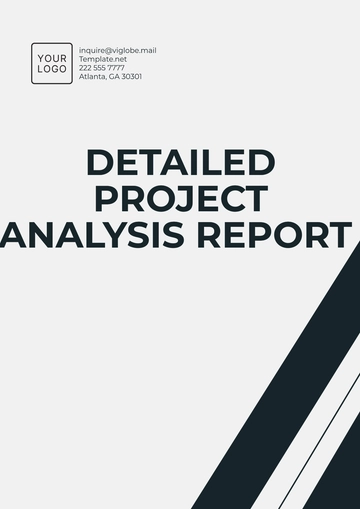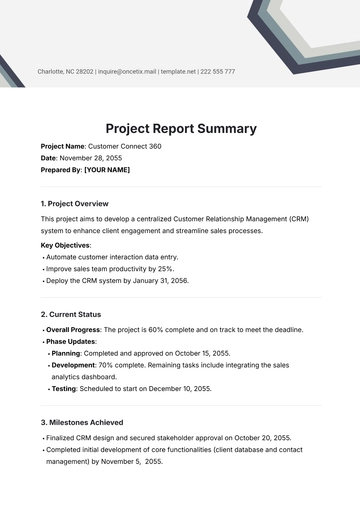Free Project Inception Report
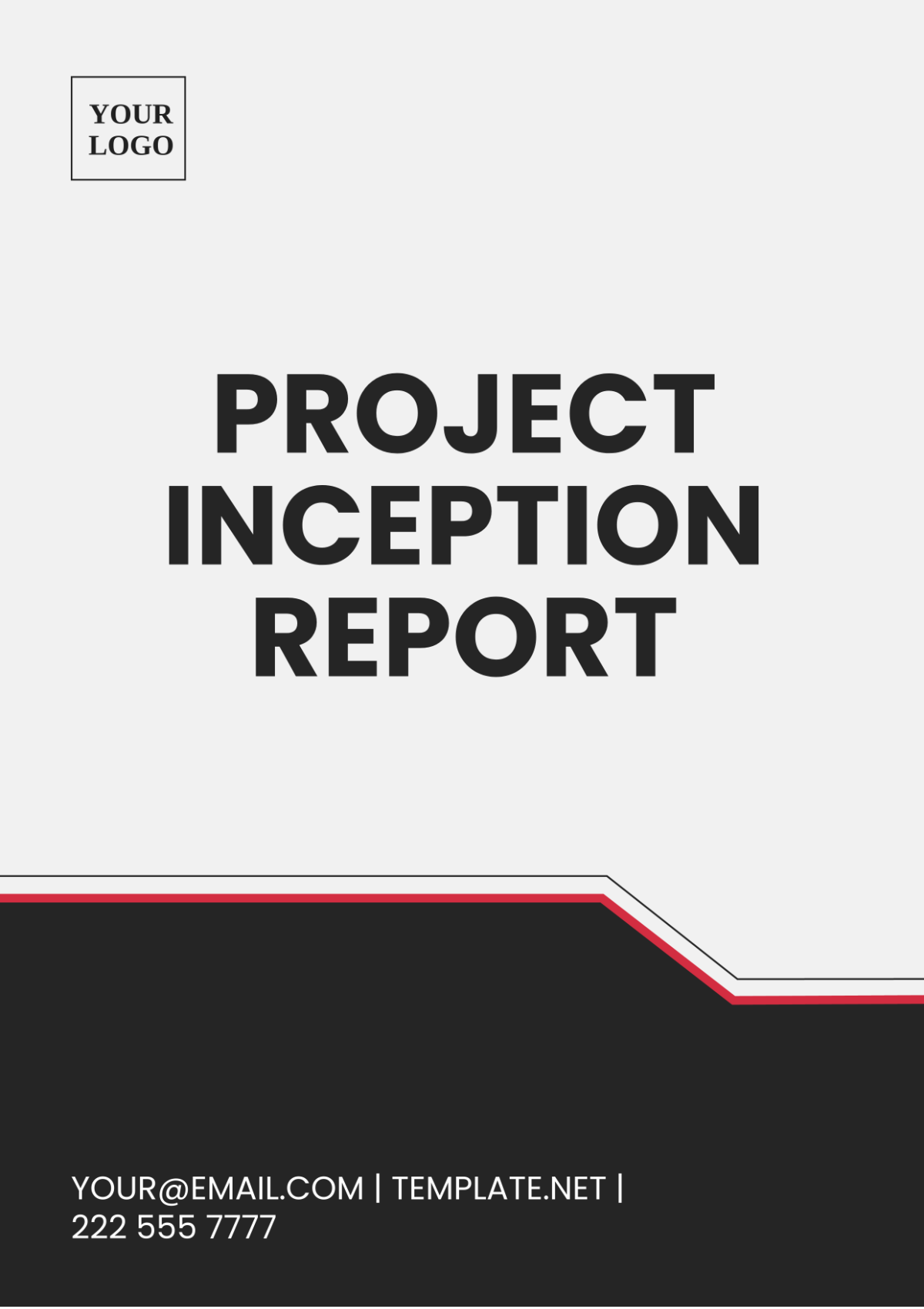
Report Prepared By: | [Your Name] |
Position: | [Your Position] |
Company Name: | [Your Company Name] |
Date: | [Date] |
I. Introduction
The [Your Company Name] is embarking on a groundbreaking project to develop a sustainable energy solution for urban areas. This report serves to outline the initial plan and strategy for the project, codenamed "[Project Name]."
The primary objective of this report is to provide stakeholders with a clear understanding of the project scope, objectives, and key considerations at its inception stage.
The report is structured to cover essential aspects such as project objectives, scope, stakeholder analysis, risk assessment, mitigation strategies, and a high-level project timeline.
II. Project Objectives
Develop an innovative energy solution that reduces carbon emissions by 50% within urban environments by 2055.
Increase energy efficiency and promote renewable energy sources to enhance sustainability and resilience in urban infrastructure.
Foster collaboration with local governments, businesses, and communities to implement the [Project Name] and drive positive environmental impact.
III. Scope and Deliverables
The project scope includes research and development of new energy technologies, pilot testing in select urban areas, and scaling up successful solutions for widespread implementation.
Deliverables will include feasibility studies, prototype development, pilot project reports, and comprehensive documentation for knowledge sharing and replication.
IV. Stakeholder Analysis
Key stakeholders include government agencies, utility companies, environmental organizations, technology providers, and local communities.
Government agencies have a high level of influence and interest in promoting sustainable development initiatives, while technology providers play a crucial role in developing innovative solutions.
Effective stakeholder engagement strategies will be implemented to ensure alignment of interests and active participation throughout the project lifecycle.
V. Project Risks and Mitigation
Risk | Likelihood | Impact | Mitigation Strategy |
|---|---|---|---|
Technological Uncertainty | High | High |
|
Regulatory Challenges | Medium | High |
|
Funding Constraints | High | High |
|
Public Acceptance Issues | Medium | High |
|
VI. Initial Resource Requirements
Resources required for the initial phases of the project include:
Resource Type | Description |
|---|---|
Human Resources |
|
Financial Budget | An initial budget of $10,000,000 |
Technological Resources |
|
VII. Project Timeline
Phase | Activities | Start Date | End Date |
|---|---|---|---|
Phase 1: Research and Development |
| January 1, 2050 | December 31, 2051 |
Phase 2: Pilot Testing in Urban Areas |
| January 1, 2052 | December 31, 2053 |
Phase 3: Scaling Up and Implementation |
| January 1, 2054 | December 31, 2055 |
Phase 4: Monitoring and Evaluation |
| January 1, 2056 | December 31, 2057 |
Phase 5: Knowledge Sharing and Replication |
| January 1, 2058 | December 31, |
VIII. Conclusion
The [Project Name] represents a transformative effort to address pressing environmental challenges and pave the way for a sustainable future. By leveraging innovative technologies and fostering collaboration among diverse stakeholders, we aim to create lasting positive impacts and build resilient urban communities for generations to come.
This Project Inception Report lays the foundation for a structured and well-planned project. With clear objectives, identified resources, and a detailed timeline, [Your Company Name] is well-positioned to execute this project successfully.
- 100% Customizable, free editor
- Access 1 Million+ Templates, photo’s & graphics
- Download or share as a template
- Click and replace photos, graphics, text, backgrounds
- Resize, crop, AI write & more
- Access advanced editor
Introducing the Project Inception Report Template by Template.net. This versatile tool simplifies project initiation documentation. Fully editable and customizable, it empowers users to tailor each section to their project specifics. Streamline reporting processes with clarity and precision, ensuring thorough documentation of project inception. Enhance project assessments and decision-making with this user-friendly template, designed to meet your project's needs.
You may also like
- Sales Report
- Daily Report
- Project Report
- Business Report
- Weekly Report
- Incident Report
- Annual Report
- Report Layout
- Report Design
- Progress Report
- Marketing Report
- Company Report
- Monthly Report
- Audit Report
- Status Report
- School Report
- Reports Hr
- Management Report
- Project Status Report
- Handover Report
- Health And Safety Report
- Restaurant Report
- Construction Report
- Research Report
- Evaluation Report
- Investigation Report
- Employee Report
- Advertising Report
- Weekly Status Report
- Project Management Report
- Finance Report
- Service Report
- Technical Report
- Meeting Report
- Quarterly Report
- Inspection Report
- Medical Report
- Test Report
- Summary Report
- Inventory Report
- Valuation Report
- Operations Report
- Payroll Report
- Training Report
- Job Report
- Case Report
- Performance Report
- Board Report
- Internal Audit Report
- Student Report
- Monthly Management Report
- Small Business Report
- Accident Report
- Call Center Report
- Activity Report
- IT and Software Report
- Internship Report
- Visit Report
- Product Report
- Book Report
- Property Report
- Recruitment Report
- University Report
- Event Report
- SEO Report
- Conference Report
- Narrative Report
- Nursing Home Report
- Preschool Report
- Call Report
- Customer Report
- Employee Incident Report
- Accomplishment Report
- Social Media Report
- Work From Home Report
- Security Report
- Damage Report
- Quality Report
- Internal Report
- Nurse Report
- Real Estate Report
- Hotel Report
- Equipment Report
- Credit Report
- Field Report
- Non Profit Report
- Maintenance Report
- News Report
- Survey Report
- Executive Report
- Law Firm Report
- Advertising Agency Report
- Interior Design Report
- Travel Agency Report
- Stock Report
- Salon Report
- Bug Report
- Workplace Report
- Action Report
- Investor Report
- Cleaning Services Report
- Consulting Report
- Freelancer Report
- Site Visit Report
- Trip Report
- Classroom Observation Report
- Vehicle Report
- Final Report
- Software Report
